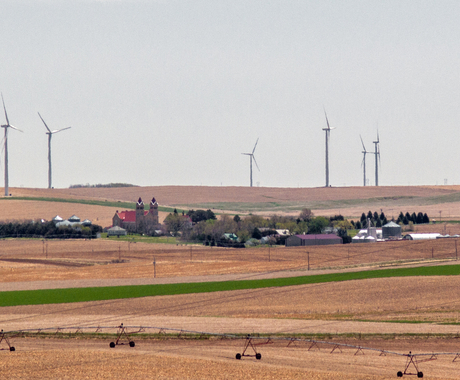Teresa Hoffman, senior communications associate, [email protected], 402.687.2100 ext. 1012
LYONS, NEBRASKA – On Monday, the Center for Rural Affairs joined more than 600 organizations, businesses, and farms to urge U.S. House and Senate Agriculture Committee leaders to protect historic investments in conservation and climate-smart agriculture.
The Inflation Reduction Act (IRA) of 2022 allocated almost $20 billion over five years to the U.S. Department of Agriculture for conservation programs with climate impacts. Among the investments are $3.25 billion for the Conservation Stewardship Program (CSP) and $8.45 billion for the Environmental Quality Incentives Program (EQIP).
In a letter, a broad coalition of signatories called on Congress to ensure funding is directed to its intended programs as lawmakers develop the next farm bill.
“This is the largest investment into agriculture conservation and rural communities in decades and farmers, ranchers, and foresters across the country are depending on these resources,” the letter reads.
CSP and EQIP are working lands conservation programs, meaning they support producers in implementing conservation practices on land actively used for agricultural production. They help producers adopt practices that build soil health, sequester carbon, improve water quality, promote resiliency, and more. The programs are voluntary and provide both technical and financial assistance.
“CSP and EQIP have historically been underfunded and oversubscribed,” said Kate Hansen, senior policy associate with the Center. “Year after year, we see producer demand unmet due to limited funds. IRA investments present a robust opportunity to get more conservation practices on the ground, across the country.”
A recent Center survey of CSP users in the Midwest and Great Plains highlights the program’s impact. Of the more than 400 respondents, nearly 79% said the program helped them afford conservation practices, and about 77% said the program helped them improve soil health.
“Keeping these IRA funds in conservation programs, as intended, will be a win for farmers, ranchers, and our natural resources,” Hansen said.





